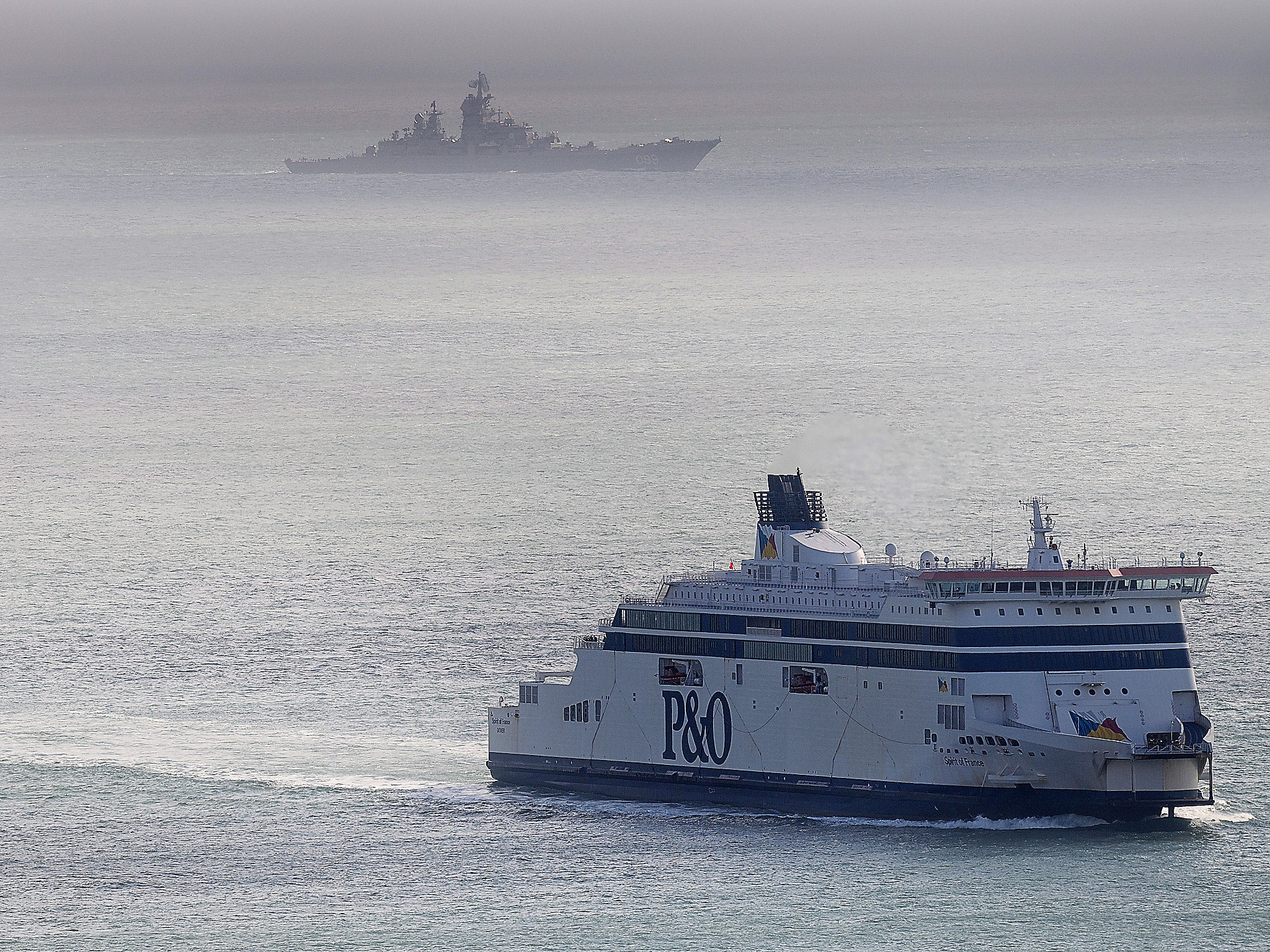Russian warships escorted through English Channel by British navy on their way to Syria
'We will be watching as part of our steadfast commitment to keep Britain safe,' says Defence Secretary Michael Fallon
Your support helps us to tell the story
From reproductive rights to climate change to Big Tech, The Independent is on the ground when the story is developing. Whether it's investigating the financials of Elon Musk's pro-Trump PAC or producing our latest documentary, 'The A Word', which shines a light on the American women fighting for reproductive rights, we know how important it is to parse out the facts from the messaging.
At such a critical moment in US history, we need reporters on the ground. Your donation allows us to keep sending journalists to speak to both sides of the story.
The Independent is trusted by Americans across the entire political spectrum. And unlike many other quality news outlets, we choose not to lock Americans out of our reporting and analysis with paywalls. We believe quality journalism should be available to everyone, paid for by those who can afford it.
Your support makes all the difference.A fleet of Russian warships heading to Syria have entered the English Channel, shadowed by the Royal Navy.
Soviet-era aircraft carrier Admiral Kuznetsov, which can carry more than 50 planes, crossed international waters in the North Sea with seven other vessels in the largest Russian military deployment since the Cold War.
A spokesperson for the Ministry of Defence (MoD) told The Independent the ships were not expected to stop in the Channel.
“It looks like they will be going via Dover and passing through into the afternoon,” she added.
The Admiral Kuznetsov is loaded with fighter jets, reconnaissance and combat helicopters and cruise missiles to be used to bolster Russia’s bombing campaign in support of President Bashar al-Assad.

The MoD said it had dispatched Royal Navy ships to escort the vessels and Defence Secretary Michael Fallon suggested the taskforce was designed to “test” the British naval response.
“It's being marked every step of the way by the Royal Navy and ships and planes of other Nato members as well,” he said.
“It's clearly designed […] to test our response, and any weaknesses in the alliance, and we must make sure we respond in due measure.”
British warship HMS Richmond escorted the group from the Norwegian Sea as it steamed south and Type 45 destroyer HMS Duncan sailed from Portsmouth on Tuesday to “man-mark” the Kuznetsov group.
“We will be watching as part of our steadfast commitment to keep Britain safe,” said Sir Fallon in a statement.
The fleet set off from Russia on 15 October to reinforce the attack on the besieged city of Aleppo in Syria, where a three-day humanitarian truce is underway.
Russian defence minister Sergei Shoigu said in September that the Admiral Kuznetsov-led fleet would be joining a taskforce in the Mediterranean.
According to the Russian news agency Tass, he told a defence board meeting that the plan was to bolster the existing Mediterranean fleet's “combat capabilities”.
A senior Nato diplomat said Russia is “deploying all of the Northern fleet and much of the Baltic fleet in the largest surface deployment since the end of the Cold War.”
“This is not a friendly port call. In two weeks, we will see a crescendo of air attacks on Aleppo as part of Russia's strategy to declare victory there,” the diplomat added, speaking on condition of anonymity.
Plans for a humanitarian ceasefire to evacuate the wounded and allow rebels and civilians the ability to leave Aleppo was criticised by the UN, who said it could not carry out aid work unless security guarantees were met.
Yesterday, just hours before the warships were due to pass through British water, Theresa May launched a scathing attack on Russian President Vladimir Putin.
The Prime Minister accused the Russian military of “sickening atrocities” in Aleppo and highlighted the “appalling” acts which have occurred during a sustained Russian bombing campaign in the northern Syrian city.
Syrian forces, backed by Russian air power, have agreed a temporary humanitarian truce in Aleppo but Ms May urged European leaders to take a firm line against Moscow.
Arriving at her first Brussels summit as Prime Minister, Ms May called for a “robust and united European stance in the face of Russian aggression”.
She said: “It is vital that we work together to continue to put pressure on Russia to stop these appalling atrocities, these sickening atrocities, in Syria.”
A Nato official said Russia had the right to operate in international waters, and there were plans for Nato navies to monitor the ships as they head for the Mediterranean.
“The deployment of the carrier group to the eastern Mediterranean does not inspire confidence that Russia is working towards a political solution to the conflict in Syria,” they said.

Join our commenting forum
Join thought-provoking conversations, follow other Independent readers and see their replies
Comments